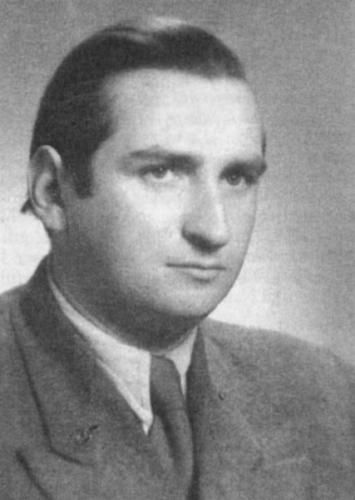Tadeusz Machl

Born in 1922 in Lviv, died in 2003 in Krakow; composer and teacher. In the years 1934-1940 he studied piano and music theory at Sabina Kasparek’s music school in Lviv. After the German troops entered Lviv, he participated in secret concerts organized by J. Swatoń. In the years 1944-1946 he was an accompanist of the choir at St. Vincent à Paulo and organist at the Church of St. Elizabeth.
In 1947 he moved to Kraków, and in the years 1947-1950 he worked as an organist at the Corpus Christi church. In the years 1950-1954 he was a proofreader, and editor at the PWM Edition. In the years 1949-1952 he studied at the State Higher School of Music in Krakow (now the Academy of Music) – composition with Artur Malawski and organ playing with Bronisław Rutkowski. In 1959 he was on a scholarship in France, where he contacted with Nadia Boulanger and also studied the work of French composers who combined the organ with an orchestral ensemble.
From 1952 he lectured at the State Higher School of Music in Krakow, teaching, among others, composition and instrumentation. He was the head of the composition department at this school (1965-1972), dean of the Department of Composition, Theory and Conducting (1966–1969) and vice-rector (1969–1972). In the years 1973–1983 he also lectured at the Pedagogical University in Kielce, and in the years 1982–1993 at the Department of History and Theory of Music at the Jagiellonian University. He was, among others, a member of the Council of Higher Artistic Education at the Minister of Culture and Art ((1969-1972, 1976-1979), secretary of the Audit Committee of the Polish Composers’ Union (1970-1972; 1974-1976), chairman of the Union of Choirs and Amateur Orchestras in Krakow (1979-1979) 1983). He also acted as the choir conductor at the Corpus Christi Church in Kraków (1960-1974) and the male choir Lutnia (1976-1980).
He has been honored with numerous awards for his composing and teaching activities, incl. the Golden Cross of Merit (1965), the Knight’s Cross (1972) and the Officer’s Cross (1988) of the Order of Polonia Restituta. In addition, he was twice the winner of the 1st degree award of the Minister of Culture and Art (1971, 1990), and in 1989 he was awarded the title of Meritorious Teacher of the People’s Republic of Poland. He was also a laureate of composition awards – in 1956 and 1959 he received special awards for his string quartets at the International Composition Competition in Liège.
